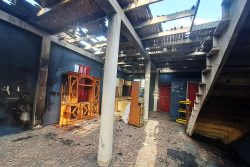Interviews by Sara Bharrat and
photos by Tiffny Rhodius
This week we asked the youths who participated in the Volunteer Youth Corps Incorporated Vacation Programme 2009 why they decided to attend and what was the most important lesson they learnt during the five weeks.
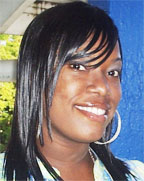 Sabrina Walcott, Programme Facilitator/Dance Instructor:
Sabrina Walcott, Programme Facilitator/Dance Instructor:
‘The programme gave me a lot of experience. I am a Social Work student and I have a passion for working with children. I think it was my passion for the field of work which drove me to volunteer for the programme. The entire programme aimed at equipping the youths with skills and dealt with various social issues affecting or that would affect them. To be honest when I first started the programme it was a challenge because almost all of the children came from different backgrounds but after working with them things got easier. This is one experience I’ll be able to share with my colleagues and hopefully the tremendous change I’ve seen in the youths who participated in this programme will help me to convince others to help with projects like these.’
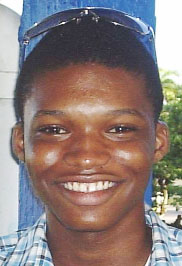 Cordell Marshall, Adult Education Association Student:
Cordell Marshall, Adult Education Association Student:
‘I think the programme was all about showcasing the talents of youths and helping them in a way where they would learn to stand up for themselves. I concentrated on acting and on singing during the last five weeks but I also learnt many other things. The most important thing I think I learnt from the programme was that as a youth I must stand up and ask questions and give answers as well. Being taught drama has given me many ideas and helped me to better make long term goals for myself. There are many persons I know who are very interested in drama but they’ve not had the exposure that I have had. I will definitely be passing on the knowledge I’ve gathered about acting to my peers.’
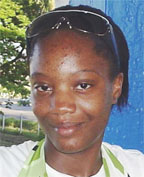 Eski Edwards, Freeburg
Eski Edwards, Freeburg
Secondary Student:
‘My councillor is the one who suggested that I participate in this programme because he wanted me to do something educative for the August holidays. But although the focus was something educative we were also aiming at something that would allow me to have some fun and excitement at the same time. I’ve learnt many things during the programme but I think the thing that had the biggest impact on me was the fact that I was finally able to understand it’s not about where you come from but Eski Edwards it’s all about where you plan to go. The pro
gramme was a major self-esteem builder as well and it helped me to discover some things about myself and taught me how important and simple it was to build self confidence. When I get back to school for the new term I will be encouraging my classmates to stay focused and I’ll tell them to be focused and that the sky’s the limit for them.’
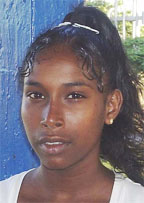 Nikita Roberts, Freeburg
Nikita Roberts, Freeburg
Secondary Student:
‘Miss Greene, from the Ministry of Human Services, was the one who put this whole thing together and I learnt of it through my school. The entire programme was entertaining as well as informative for me. We had a few tours and I concentrated mostly on the arts trying to learn how to act. For me the most important thing I was taught was that I mustn’t be afraid of anything and that having confidence in myself was the first thing to achieve the things I want. When I’m back with peers at school I’ll definitely be telling them what I learnt and I’m proud to say that I’ll be able to advise them on many things. If I hadn’t been involved in this programme during the holidays then I’d probably just have been with friends and engaging in group activities.’
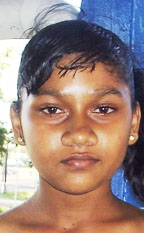 Karmalita Manniram, Tutorial High School Student:
Karmalita Manniram, Tutorial High School Student:
‘I have gained something from this programme that will last me a lifetime. It has helped me to build my confidence. My parents decided that I should attend the programme just because we heard about it from other people. At first I wasn’t too excited to attend and I think part of the reason was because I lack self-esteem. But over the last couple of weeks I’ve learnt that I am special and I’ve gotten guidance about other personal things as well. I also started to think about my career choices and I want to be a Probation Officer later in life. I love kids and I’d like to see them go the right way. I know that sometimes all young people want is a little nudge in the right direction.’
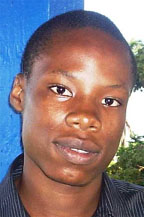 Deshawn Mc Lean, Student:
Deshawn Mc Lean, Student:
‘My parents decided to send me just for the
new experience and it all worked out well. I’ve gotten a lot of help from the facilitators of the programme and I was encouraged to hunt down and develop my talents. I figured out that I’m really into singing and it’s something I’m going to develop. I’m not sure exactly what would classify as the most important thing I learnt during the programme because there were so many but I know there are quite a few things I want to share with my family and friends.’
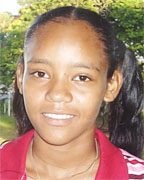 Sylvia Wilkinson, Community College Student:
Sylvia Wilkinson, Community College Student:
‘Self-esteem is the most important thing I learnt during the programme. Before I attended this programme I used to be a very shy and quiet person but now I’m getting brave. I am now capable of solving of a fight without using violence and I can tell you that it is a very handy skill to have at my age. I think the main reason my self-esteem was so low is because I used to think that I was never good enough but I’ve learnt to think positive things. People used to call me sorts of negative names and so I thought negative about myself. But I learnt that I don’t have to listen to those people and that if I think positive of myself them I’ll see how good and wonderful I am.’
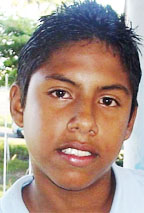 Kevin Minoo, CommunityCollege Student:
Kevin Minoo, CommunityCollege Student:
‘My teacher is the one who recommended that I attend this programme. He said that I would be educated and for me it was a lot more than that. We learnt about HIV/AIDS, solving conflicts and how to boost our self-esteem. I was shy when I started the programme because I didn’t really know anyone. Good thing I didn’t let that get to me though because now I will be able to teach my brothers and cousins about all the things I’ve learnt.’
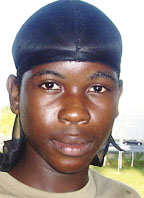 Deron Collins, Adult Education Association Student:
Deron Collins, Adult Education Association Student:
‘The things I absorbed most during the programme were HIV/AIDS and non-violent conflict resolution. I learnt a lot about why it is important for me, as a youth, to have self respect. Conflict resolution, in my opinion, is one of the most important skills we were taught. A lot of simple arguments between youths tend to escalate into all sorts of nasty things these days and it’s nice to know that with a few well thought of words we can solve a problem in a peaceful manner. Before this programme I also knew next to nothing about HIV/AIDS and I had a lot of false beliefs. But now I am well informed and I know how the virus can be transmitted and I am equipped to protect myself. There are lots of my friends who still have to false beliefs I had but when school starts I will be able to clear things up for them and teach them how important it is for them to be careful.’
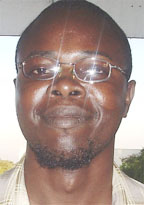 Kidackie Amsterdam, Programme Facilitator/Drama Instructor:
Kidackie Amsterdam, Programme Facilitator/Drama Instructor:
‘I have been working with youths ever since I was a youth myself and I’ve always had a need to help and guide those who I know are our future. Anything I can do to contribute to the development of youth I try to get involved in. I think the most valuable thing I learnt during this course, or rather the most important thing I was reminded of, is that youths will always be youths. At the beginning of this programme it was very challenging for me and other facilitators as well because there was a lot of indiscipline present and it was difficult to keep them all focused. My area of expertise especially made things worse for me because drama is all about directing and that doesn’t go well with indiscipline. But over the weeks I spent with these youths I saw vast growth and there was a great increase in their interest in the programme and their dedication towards it. I think that adults must recognize that they are responsible for our youths and they can only teach them good by setting a good example themselves. Socializing our young people takes a lot but certain negative traits are not inbred and youths can be taught how to get them out and be the best they can.’






